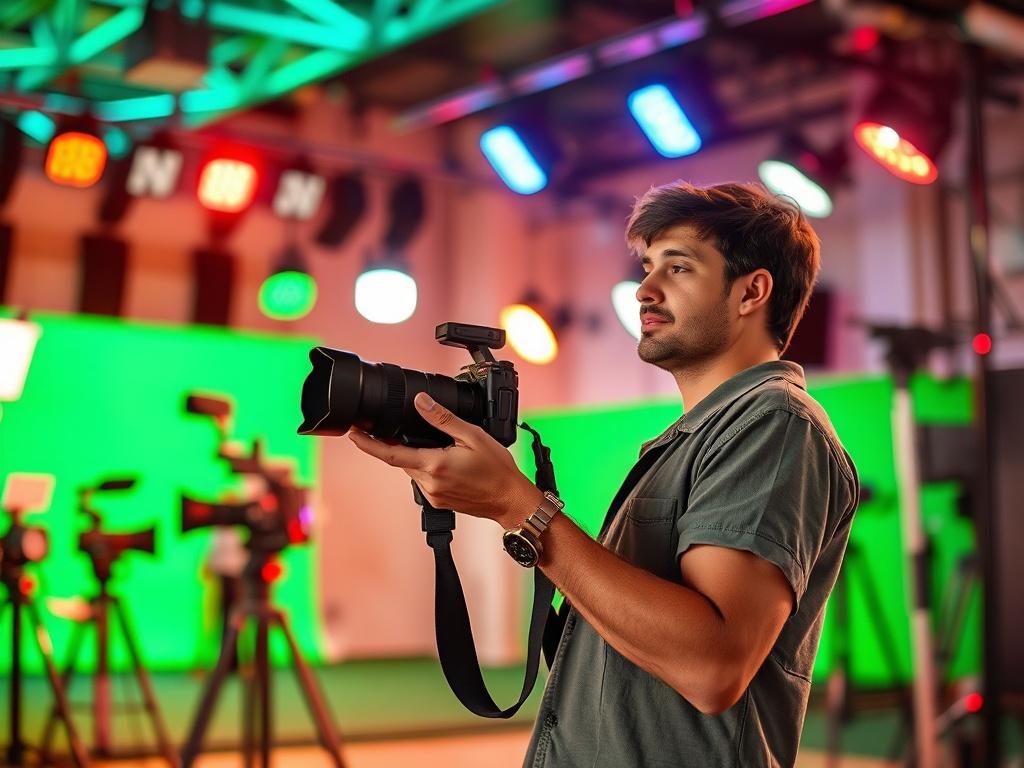
In today's rapidly evolving landscape, the film industry is undergoing a transformative shift driven by cutting-edge technologies and innovative practices. As filmmakers continue to adapt to the digital revolution, new trends are emerging that significantly impact production processes, storytelling techniques, and audience engagement. By exploring the latest developments shaping the film industry, we can gain insights into how these changes are not only redefining cinematic creativity but also enhancing the overall filmmaking experience.
Beyond technology, sustainable filmmaking practices are gaining traction as environmental consciousness becomes paramount in the creative sphere. Filmmakers and studios are prioritizing eco-friendly methods, paving the way for a greener future in film production. Additionally, the rise of virtual reality is revolutionizing storytelling by offering immersive experiences that captivate audiences in unprecedented ways. Join us as we delve into these exciting trends and discover how they are reshaping the film industry for years to come.
The digital revolution: explore the latest developments shaping the film industry
The digital revolution has significantly transformed the film production landscape, providing filmmakers with innovative tools and platforms that enhance creativity and efficiency. High-definition cameras, drones, and advanced editing software enable creators to produce stunning visuals and seamless narratives at a fraction of the cost compared to traditional methods. Streaming services have also reshaped how films are distributed and consumed, allowing filmmakers to reach global audiences without the need for conventional film festivals or theater releases. As a result, more stories are being told, often focusing on diverse voices and perspectives that were previously overlooked in mainstream cinema.
Furthermore, the rise of artificial intelligence (AI) and machine learning continues to revolutionize various aspects of film production. From script analysis to audience insights, filmmakers can leverage data to make informed decisions about content creation and marketing strategies. AI-driven tools can streamline the editing process, helping editors find the best takes and create compelling trailers more efficiently. As technology advances, the film industry embraces these changes, ensuring that filmmakers remain at the forefront of creative storytelling while responding to audience preferences and market trends.
Sustainable filmmaking practices: Pioneering a greener future in film production
The film industry is undergoing a significant transformation as filmmakers increasingly adopt sustainable practices to minimize their environmental impact. From utilizing renewable energy sources on set to employing eco-friendly materials, these initiatives reflect an urgent need to reassess traditional production methods. Filmmakers now prioritize reducing carbon footprints, through strategies such as digital distributions to limit waste and promote efficiency. As awareness of climate change grows, industry leaders recognize that sustainable filmmaking is not just a trend but an essential shift towards preserving our planet for future generations.
In addition to implementing greener technologies, many productions are creating guidelines to encourage sustainability on a broader scale. Collaborative efforts, such as the Green Production Guide, offer resources to help filmmakers integrate eco-friendly practices into their projects seamlessly. This shift not only enhances a film's reputation among environmentally conscious audiences, but also opens doors to new funding opportunities from sponsors eager to support sustainable initiatives. As filmmakers embrace these practices, they establish a precedent that encourages innovation, fosters community engagement, and paves the way for a more sustainable future in the film industry.
Embracing virtual reality: Explore innovative technologies transforming storytelling
Virtual reality (VR) is revolutionizing how filmmakers engage audiences and tell stories. By immersing viewers in fully interactive environments, filmmakers can create experiences that go beyond the traditional screen. This technology allows for a deeper emotional connection, as audiences are not just passive observers but active participants in the narrative. Projects like VR short films, interactive documentaries, and immersive theatre combine storytelling with cutting-edge technology, urging filmmakers to rethink their creative processes and adopt new techniques.
As the industry embraces VR, collaborations between filmmakers and tech companies are becoming increasingly common. Studios experiment with blending live-action footage with computer-generated environments to enhance storytelling and provide unique viewer experiences. Notable examples include projects like The Invisible Hours, which allows players to explore multiple perspectives in a murder mystery. As VR technology continues to advance, filmmakers will have the opportunity to push the boundaries of creativity, offering unprecedented storytelling methods that engage audiences in ways they never imagined possible.